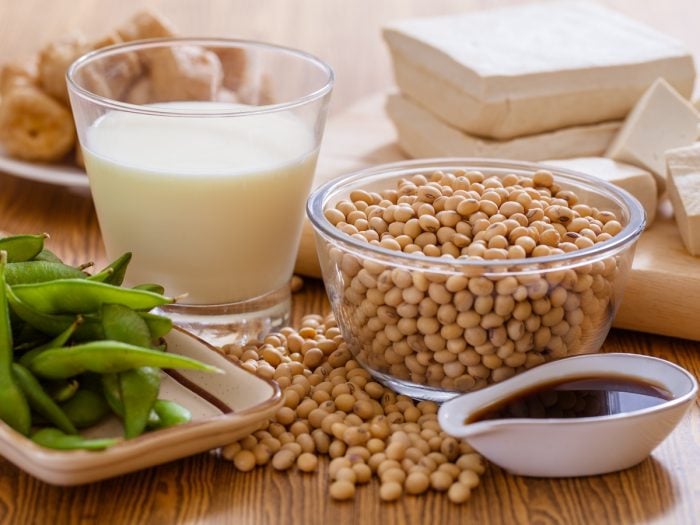Eating estrogen-rich foods can be very beneficial for managing hormone levels and avoiding drastic fluctuations in this key hormone, particularly for women.
What is Estrogen?
Estrogen is the name for a group of hormones that are present in both men and women, although the hormone is primarily associated with the reproductive and sexual health of women. This hormone is produced by the ovaries during menstruation, as well as between menstrual cycles. A woman’s estrogen levels will fall between these two times, and this fluctuation can cause unwanted side effects, such as mood swings, appetite changes, and fatigue, among others. [1]
Not only is estrogen necessary for regulating a woman’s normal sexual cycles, but it also has an effect on heart health, the urinary tract, bone density, and skin quality. One of the best ways to maintain even levels of estrogen and ensure that your body has adequate levels is to eat estrogen-rich foods. Depending on each individual, the proper intake of estrogen may vary. [2]

Food affects our hormones. Photo Credit: Shutterstock
Estrogen-Rich Foods
The best estrogen-rich foods include seeds, red wine, garlic, black beans, and tofu, among many others that include the following:
- Flax seeds
- Sunflower seeds
- Almonds
- Olive oil
- Pumpkin seeds
- Pistachios
- Peanuts
- Walnuts
- Red wine
- Herbal tea
- Dried apricots
- Dates
- Prunes
- Coffee
- Red clover
- Hummus
- Multi-grain bread
- Millet
- Bran
- White beans
- Chickpeas
- Garlic
- Tofu
- Tempeh
- Soy milk
- Sesame seeds
- Yogurt
- Peas
- Olive
Estrogen Foods to Avoid
There are also a number of foods that should be avoided that are rich in estrogen, particularly if your doctor has informed you that you are experiencing “estrogen dominance”. [3]
- In boys and men, having an excessive amount of estrogen can lead to unwanted side effects, such as the development of female secondary sex characteristics.
- In girls and women, having too much estrogen in the body might add to your risk of certain cancers, such as prostate, breast, and uterine. [4]
- Furthermore, a history of other conditions like endometriosis, ovarian cysts, and gallstones can put you at higher risk of experiencing estrogen dominance.
If you are suffering from the symptoms of estrogen dominance, there are some foods that you should avoid, particularly those that are known to have high levels of certain environmental toxins.
- Soy and soy-based products
- Chicken soup base
- Wheat
- High-carb processed food
- Meat products
- Potato sticks
- Vegetable oil
- Chewing gum
- Refined sugar
- Eggs
- Fish
- Conventional dairy products
- Alcohol
- Tap water
Speaking with your doctor about dietary adjustments of estrogen is very important.
